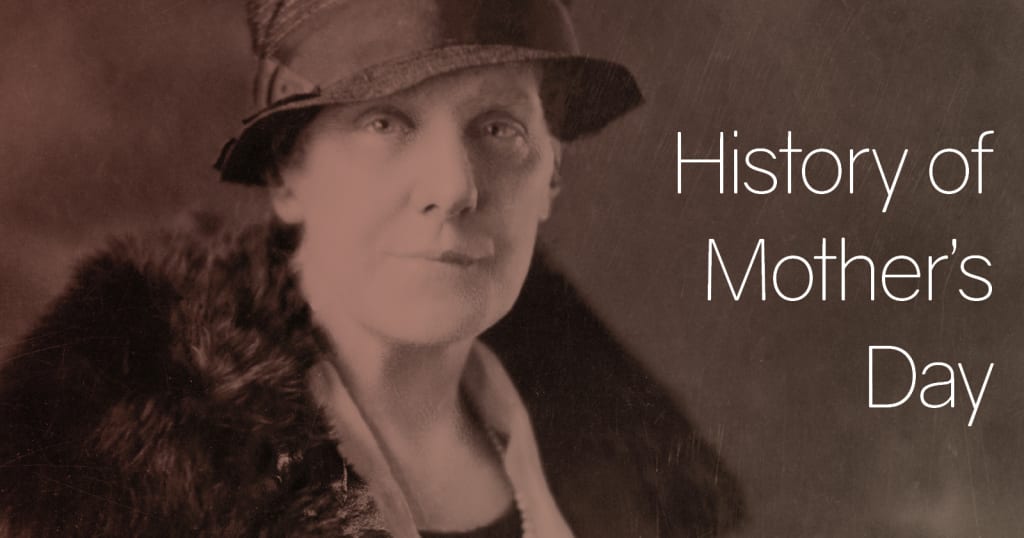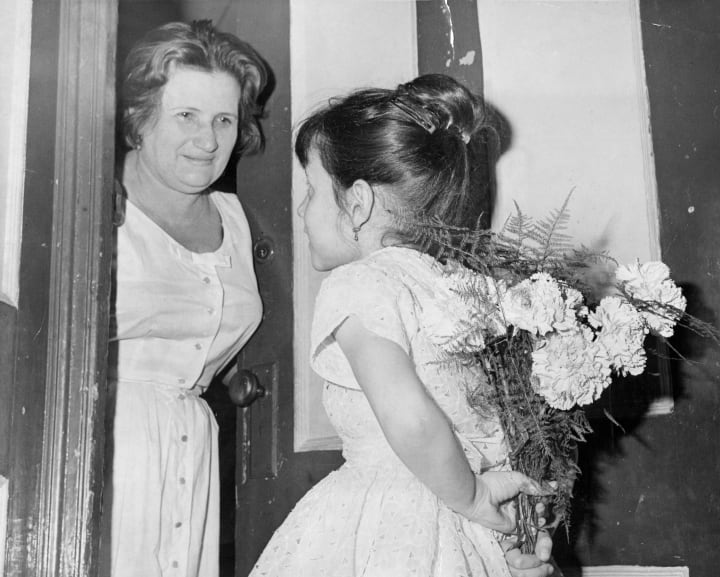"The History of Mother's Day: Honoring the Love and Sacrifice of Mothers"
From Ancient Goddesses to Modern Celebrations - Tracing the Evolution of a Cherished Holiday

Mother's Day is a holiday celebrated to honor mothers and motherhood. It is observed in various forms and on different dates around the world. The history of Mother's Day dates back to ancient civilizations, but the modern holiday has its roots in the early 20th century.
Ancient civilizations such as the Greeks and Romans had festivals dedicated to mother goddesses. For example, the Greeks celebrated Rhea, the mother of the gods, while the Romans had a spring festival called Hilaria, dedicated to Cybele, a mother goddess.
The modern concept of Mother's Day began in the United States in the early 20th century. The pioneer of the holiday in its current form is often considered to be Anna Jarvis. After her mother's death in 1905, Jarvis wanted to find a way to honor the sacrifices mothers made for their children.
In 1908, Jarvis held a memorial service for her mother in West Virginia, which was attended by hundreds of people. She then began campaigning for the establishment of a national holiday to honor mothers. Her efforts led to the official recognition of Mother's Day as a holiday in the United States.
In 1914, President Woodrow Wilson signed a proclamation designating the second Sunday in May as Mother's Day. It quickly gained popularity and became a widely celebrated holiday. The day was intended to be a time for people to express their love and gratitude to their mothers by giving them cards, flowers, and other gifts.
Over time, Mother's Day spread to other countries and cultures. While the dates and customs vary, the underlying sentiment of honoring and appreciating mothers remains the same. In many countries, Mother's Day is now celebrated on the second Sunday in May, following the U.S. tradition.
It's important to note that Anna Jarvis later became disillusioned with the commercialization of Mother's Day, as it shifted from a personal tribute to a commercialized holiday. She even fought against the holiday she helped create, advocating for people to show their appreciation to their mothers in a more personal and heartfelt manner.
Despite the controversies and commercialization surrounding the holiday, Mother's Day continues to be widely celebrated worldwide as a special day to honor and appreciate mothers and mother figures.
Here are some additional details about the history of Mother's Day
Anna Jarvis, the driving force behind the establishment of Mother's Day, wanted the holiday to be a heartfelt and personal expression of love and gratitude towards mothers. She envisioned it as a day of family gatherings and handwritten letters, where people would take the time to appreciate and honor their mothers.
After the holiday gained popularity in the United States, Anna Jarvis became concerned about the commercialization of Mother's Day. She felt that businesses were exploiting the holiday for profit and losing sight of its original purpose. Jarvis criticized the sale of pre-made Mother's Day cards and other commercial products, believing that people should instead express their love and appreciation in their own words.
Jarvis actively campaigned against the commercialization of Mother's Day and even initiated lawsuits against companies that used the name "Mother's Day" without her permission. Despite her efforts, the commercial aspects of the holiday continued to grow, and it became a significant source of revenue for businesses.

In terms of international adoption, many countries embraced the idea of Mother's Day and established their own traditions. While the dates may vary, the sentiment of honoring and celebrating mothers remains consistent. For example, the United Kingdom celebrates Mothering Sunday on the fourth Sunday of Lent, while in India, Mother's Day is observed on the second Sunday in May.
Mother's Day has evolved to include not just biological mothers but also mother figures, such as stepmothers, grandmothers, and adoptive mothers. It has become a day to recognize and appreciate the significant role that these nurturing individuals play in our lives.
In conclusion, Mother's Day originated as a heartfelt tribute to mothers and has grown into a widely celebrated holiday around the world. While the commercialization of the holiday has drawn criticism, the core purpose of expressing love and gratitude towards mothers remains at its heart.
About the Creator
Misi
I am a content writer, a good poet. I love writing or reading fiction.
Enjoyed the story? Support the Creator.
Subscribe for free to receive all their stories in your feed. You could also pledge your support or give them a one-off tip, letting them know you appreciate their work.






Comments
There are no comments for this story
Be the first to respond and start the conversation.